Ohio Gov. DeWine campaign got secret $2.5 million boost from power company, new records show
A dark money group funded by FirstEnergy spent $2.5 million to support the GOP hopeful as the utility pushed bailout of struggling nuclear plants.
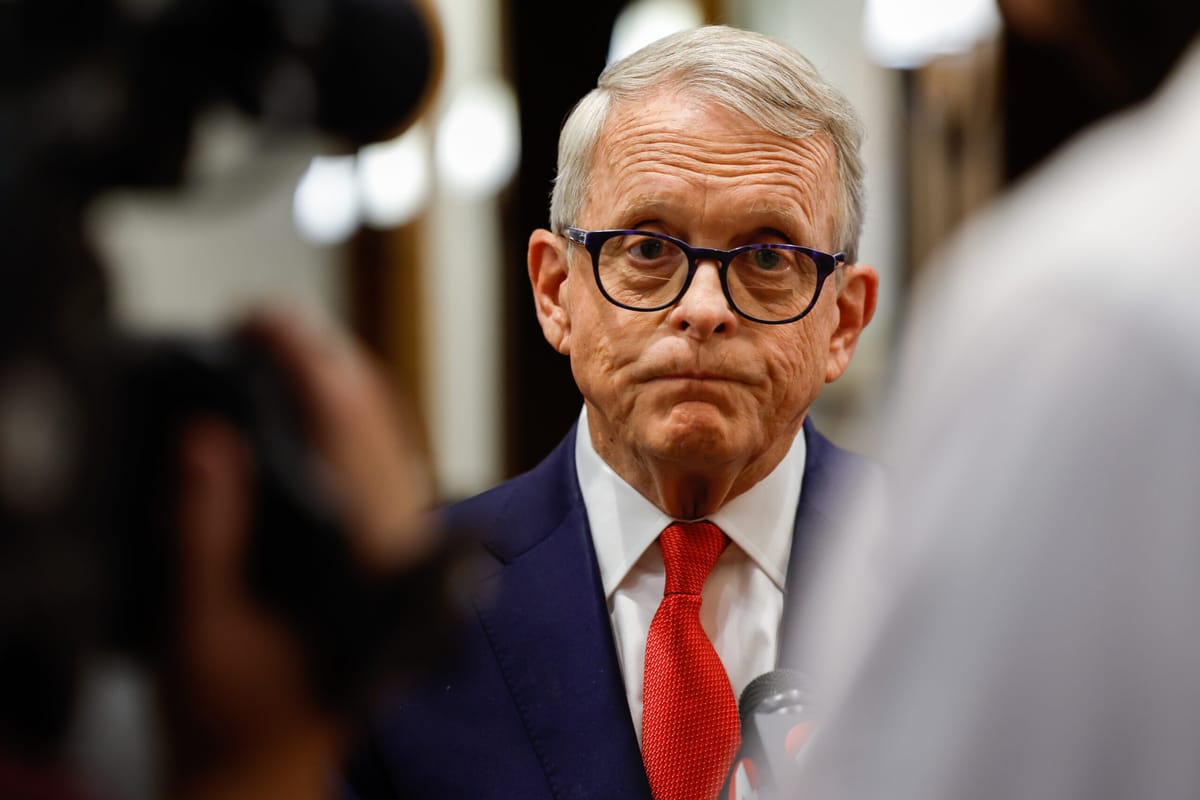
Published in Mother Jones, the Ohio Capital Journal, the Columbus Dispatch
In 2018, Akron-based FirstEnergy donated $2.5 million to a Republican Governors Association-affiliated dark money group backing GOP nominee Mike DeWine in a competitive race for Ohio governor, according to newly released records.
The records show FirstEnergy’s extensive behind-the-scenes work to get DeWine elected.
"This Fall Governor race is very important to FirstEnergy from both a legislative and regulatory perspective and getting Mike across the finish line is critical,” then- FirstEnergy CEO Chuck Jones wrote in an Aug. 14, 2018 email invitation to a DeWine fundraiser.
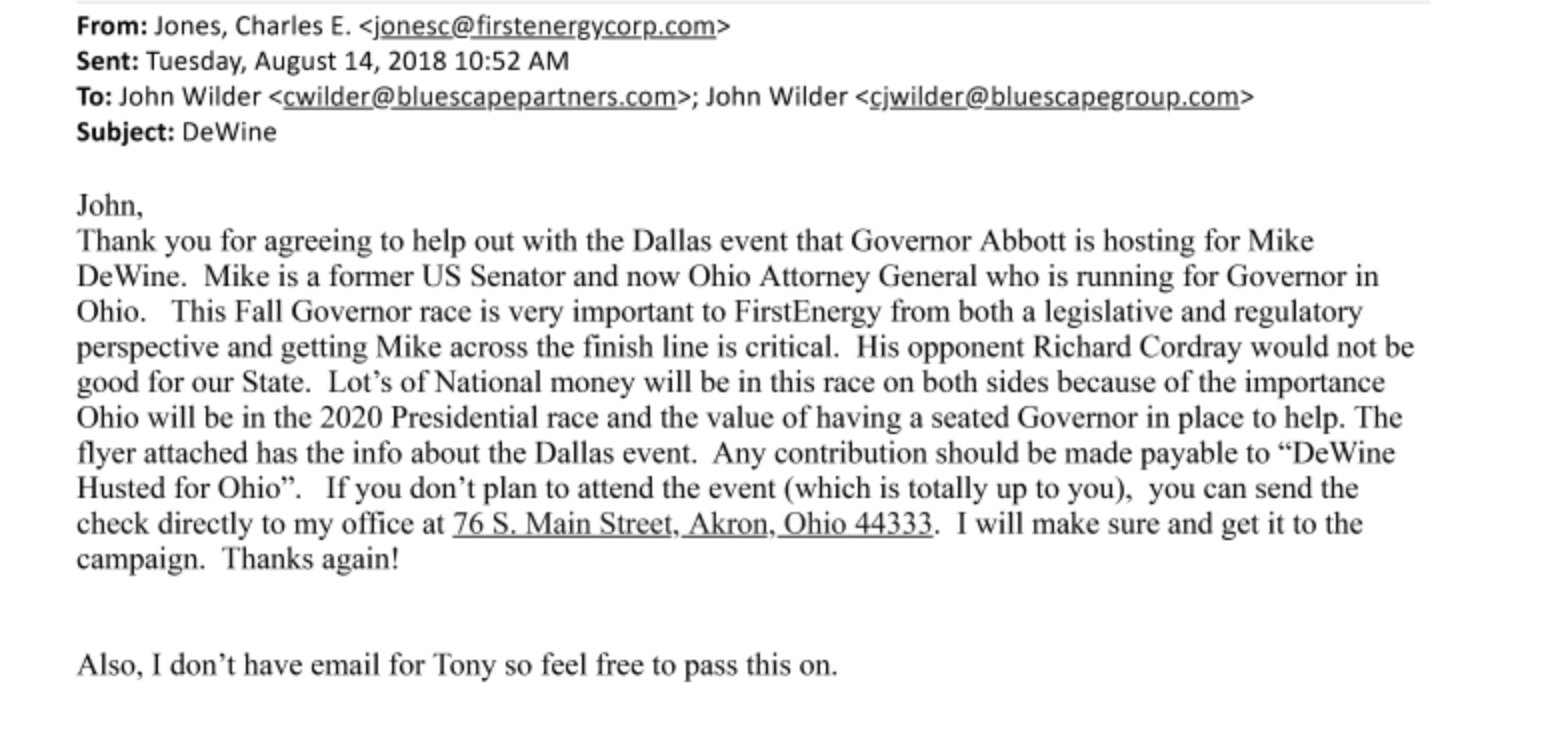
The $2.5 million donation, which had never been disclosed, reveals how invested the power company was in the outcome of the Ohio governor's race between DeWine and Democratic challenger Rich Cordray. At the time, FirstEnergy wanted to bail out two nuclear plants then owned by a subsidiary but faced opposition from Ohio leaders including then-Gov. John Kasich.
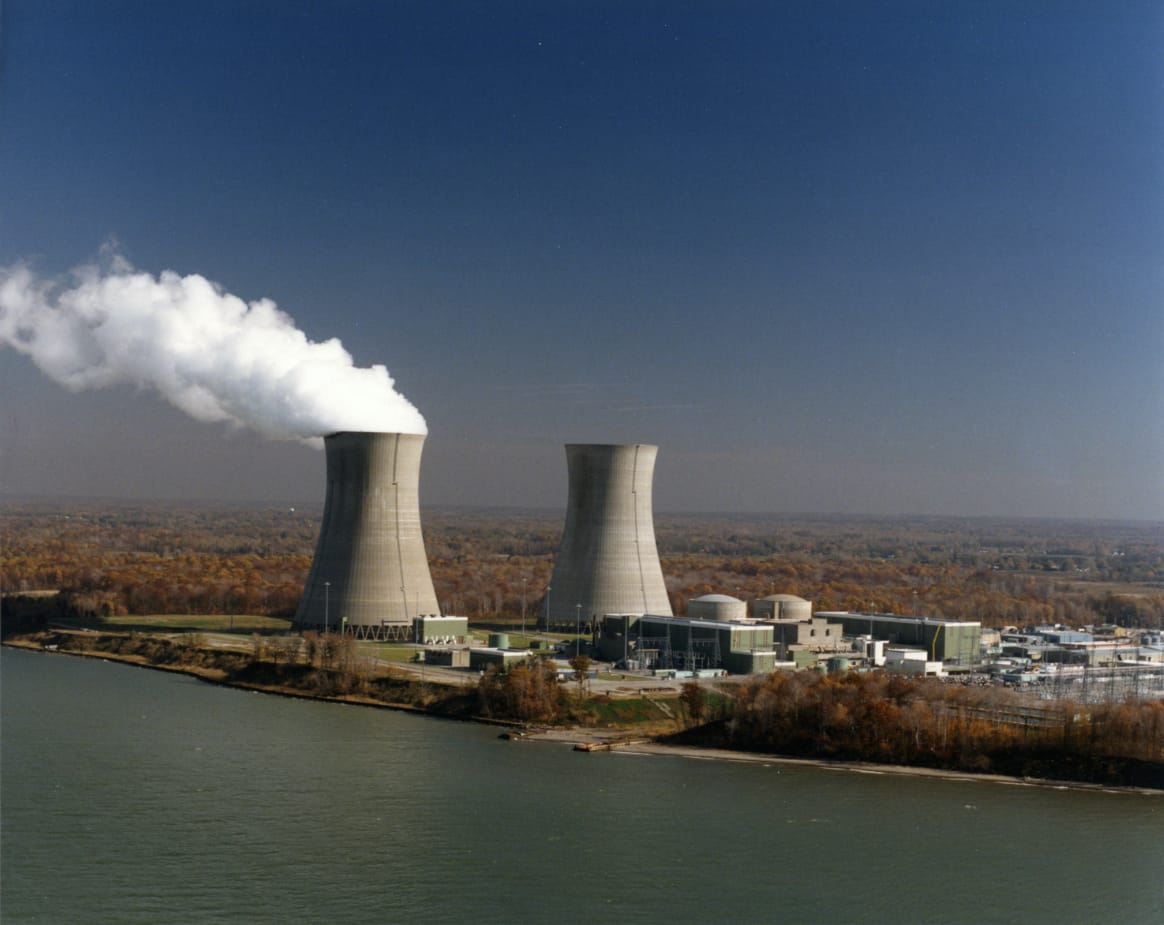
Both DeWine and Cordray had promised to save the two northern Ohio nuclear plants if they became governor, and the company chipped in publicly disclosed money to both the Republican Governors Association and Democratic Governors Association.
DeWine has not been implicated in the ongoing bribery scandal surrounding the nuclear bailout. Eight people, including the state’s former House Speaker Larry Householder, have been indicted.
Two of those charged in the multi-million dollar scandal stemming from the passage of the bailout bill have taken their own lives, including Sam Randazzo, the former chairman of the Public Utilities Commission of Ohio, who was found dead earlier this month from suicide.
FirstEnergy money sent in installments
According to the newly released records, FirstEnergy donated $2.5 million in three installments to State Solutions, a 501(c)(4) nonprofit affiliated with the Republican Governors Association that is not required to disclose its donors.
One installment of $500,000 is labeled "DeWine;" the other two are listed as "RGA," according to records released by the Public Utilities Commission of Ohio to the USA TODAY Network Ohio Bureau, Floodlight, Ohio Capital Journal and the Energy News Network.
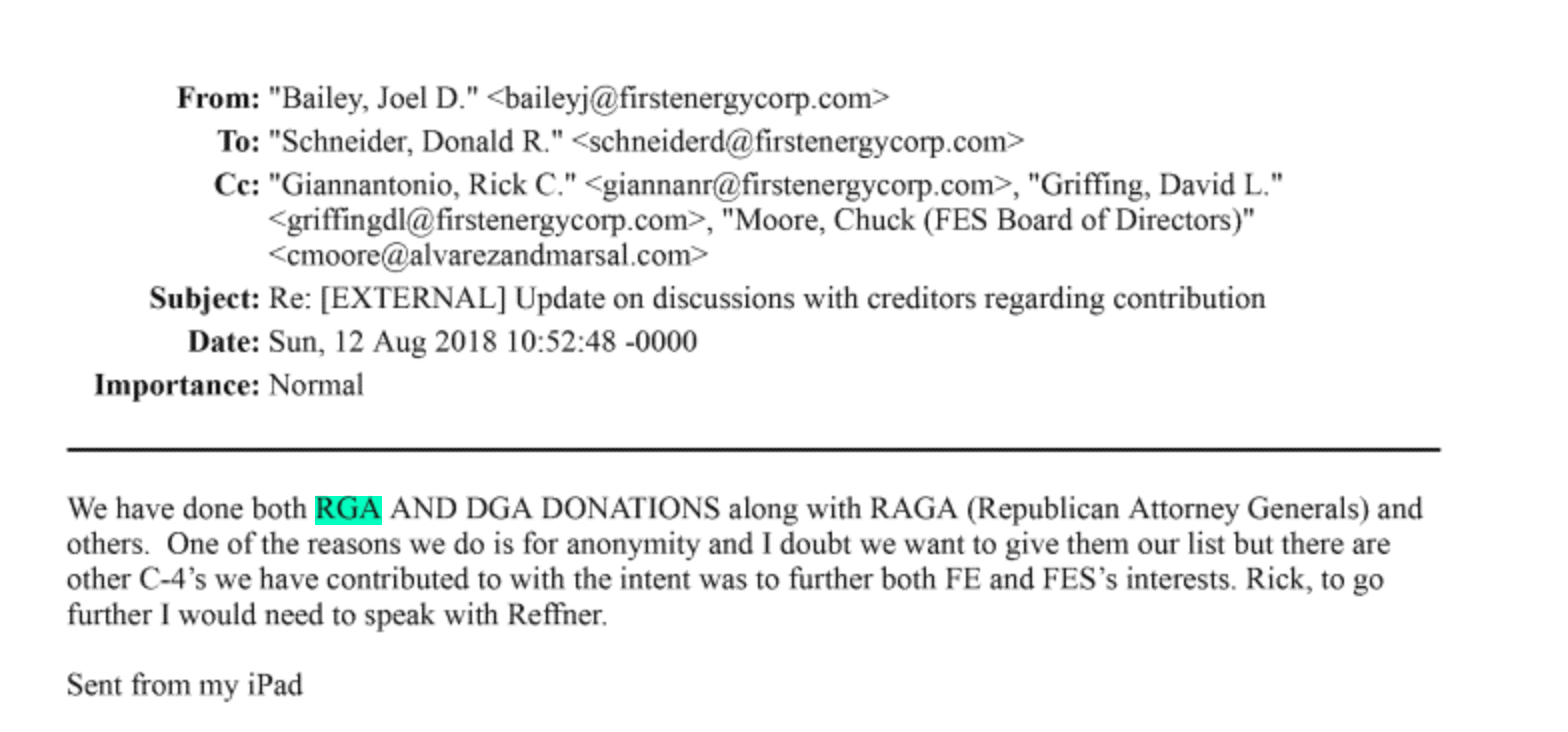
The documents, including emails among high-level FirstEnergy executives, show multiple efforts by the power company to keep its support of DeWine out of the public eye by using dark money donations.
The records show that on Aug. 14, 2018, Jones — now criminally charged in the scandal — held a fundraiser for DeWine and running mate Jon Husted, calling Husted a “good friend” to the utility.
Then DeWine met with FirstEnergy executives at an RGA fundraiser in downtown Columbus on Oct. 10, 2018, the Dayton Daily News first reported. Shortly after, FirstEnergy Solutions donated $500,000 to RGA, according to tax records.
FirstEnergy also donated $200,000 to the Citizens Policy Institute, which blasted Cordray for being "Republican Lite," according to released records. Cleveland restaurateur Tony George, a close FirstEnergy ally, was behind the group, BuzzFeed News reported at the time.
In November 2018, DeWine defeated Cordray, 50.4% to 46.7%, as Democrats swept elections across the country. In 2019, FirstEnergy helped Republican lawmakers craft HB 6, an energy overhaul measure that included $1 billion for the two nuclear plants. DeWine signed the bill within hours of it hitting his desk.
When asked if the donations influenced DeWine's support of nuclear energy, DeWine spokesman Dan Tierney said: "Gov. DeWine's support for nuclear energy is documented well prior to 2018, including during his tenure as United States senator."
FirstEnergy spokeswoman Jennifer Young said the company was unable to comment on pending litigation. Shareholders sued FirstEnergy after federal investigators revealed an extensive pay-to-play scandal bankrolled by the Ohio utility.
That federal investigation led to a 20-year prison sentence for Householder, a five-year sentence for ex-Ohio Republican Party Chairman Matt Borges and the firing of several FirstEnergy executives. A parallel state-led criminal investigation has brought charges against two FirstEnergy executives and Ohio’s former chief energy regulator.
Attorneys in the shareholder lawsuit have sought to subpoena records from DeWine and depose Husted, but neither faces any criminal accusations.
FirstEnergy donated $1 million through a dark money group to back Husted's campaign in 2017, according to previously released records. Husted and DeWine were competitors until they merged campaigns.
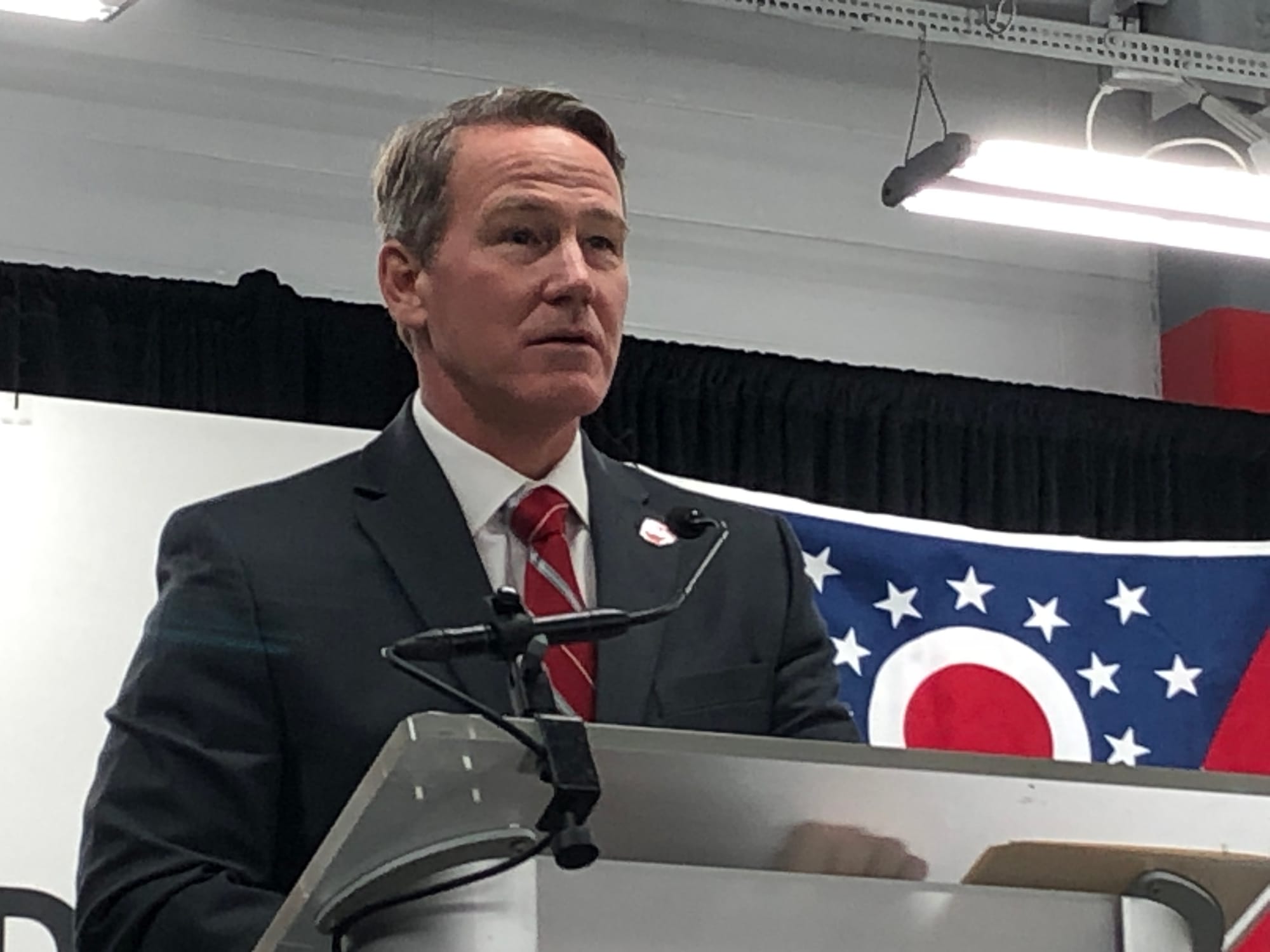
Concerns raised about earlier $1 million payment
In 2018, the nuclear plants' owner FirstEnergy Solutions was in bankruptcy. So creditors raised concerns about a $1 million payment earmarked to help DeWine's campaign, according to emails exchanged on Aug. 11, 2018. "They cited it is very large compared to DeWine's current fundraising."
Senior Vice President of External Affairs Michael Dowling tried to allay concerns by explaining that donors can back DeWine's bid in several ways, including giving to DeWine's campaign fund, the Republican Governors Association, State Solutions and the Ohio Republican Party's state candidate fund.
"Theoretically, DeWine/Husted could have a balance of $10M in their campaign account and the RGA could spend $40M in support of DeWine in Ohio," Dowling explained in an email. "My point is that comparing the size of a contribution to the RGA to what the DeWine campaign has raised or what the DeWine Campaign's current balance is can be done, but I'm not sure is logical."
Republican fundraiser Brooke Bodney, who worked with the RGA, confirmed: "All factually accurate."
Meanwhile, FirstEnergy Solutions' David Griffing reassured Akin Gump's Rick Burdick that there was no connection between State Solutions and DeWine's campaign. Akin Gump Strauss Hauer & Feld is a powerful law firm that represented FirstEnergy Solutions during its bankruptcy and lobbied for House Bill 6.
The issue was important because exchanging a political favor for a campaign donation would be illegal, a quid pro quo.
"Thanks," Burdick wrote. "Just to confirm there is also no understanding with the DeWine campaign re his position on regulatory relief for nuclear plants related to this contribution."
"Correct," Griffing replied.


